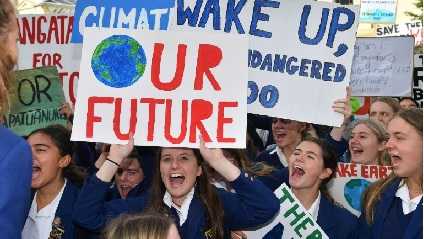
by Amelia Smith
In November, heads of state, ministers, journalists and activists will gather in Egypt's Red Sea Resort town of Sharm El-Sheikh for the UN climate change summit, COP27. There has been widespread concern about the role civil society will play.
"When it's hosted in a country like Egypt, where a serious human rights crisis has been ongoing for 10 years, there are serious concerns about the effective participation of various civil society actors," Amr Magdi, Senior Researcher in the Middle East and North Africa Division at Human Rights Watch, says.
Speaking yesterday at a Human Rights Watch webinar, Magdi adds that, since rising to power, Egypt's President Abdel Fattah Al-Sisi has launched a "wholesale, nationwide crackdown on dissent," yet has faced zero accountability.
"We are particularly concerned about protest space," says Magdi. "[Foreign Minister] Sameh Shoukry said to AP that the government is going to designate a place next to the conference space for those that want to protest, but this doesn't meet meaningful guarantees about peaceful, free and independent protests."
As for whether demonstrations will take place across the rest of the country at the same time as the summit: "It's hard to tell. Egyptian society has been severely repressed over the past years. But in this severe environment it's like a boiling pot, there have been events like in 2019 and 2020 where some popular protests erupted."
"There have been efforts to show solidarity. We see on Twitter credible activists are ringing the alarm, it's not easy to tell what will happen and whether there will be one. But there is the fear of reprisals. This is one of the biggest concerns and what is likely to happen."
Rights groups are also concerned about access to the summit, whether visas will be issued to activists, and the extent to which participants will be under surveillance.
During the 2019 African Summit in Cairo, participants complained they were being followed and their rooms being searched, says Magdi. Several African activists were denied visas or granted them very late so they could not make arrangements to attend.
Speaking from Uganda, climate justice activist, Patience Nabukalu, said that the high price of accommodation and transportation is unfortunate, as it restricts the attendance of climate defenders and advocates.
"Is this a meeting for businessmen?" Patience asks. "Or a conference of economic deals? Where are the victims of the climate crisis?"
"The majority of young people in Uganda don't even know that such events happen, yet they are busy in their communities fighting climate change. It is imperative that we create a platform with people from all walks of life so they can be given their chance to share their views."
"A platform like COP27 does not give such people opportunities to come and tell their stories, and yet they are the most affected people."
As the conference draws closer, Egypt's own environmental record, and the extent to which people can speak out about it, is under the microscope.
"There are some environmental issues that are considered safe, and the Egyptian government will encourage environmental groups to talk about. Preconceived governmental priorities," explains Director of the environment division at Human Rights Watch, Richard Pearshouse.
"These safe environmental issues are around recycling, around green tech, around international climate finance. Inside that, there is space for environmental groups to work and there is an established government narrative to the extent that these issues coincide with more sensitive issues, that's when the government will not be tolerant of dissenting views."
These sensitive environmental issues are related to the tourist industry and businesses associated with, or owned by, the military or anything related to national infrastructure projects, especially the new administrative capital.
"So in terms of how the government is positioning itself, it's positioning itself to allow very particular forms of environmentalism, which are generally quite soft and in line with the government's own agenda. And anything that is more controversial, particularly in terms of businesses or residential infrastructure projects, we would expect for there to be absolutely no space for a conversation around."
There is a crackdown on environmental groups and NGOS, Amr Magdi adds, who have stopped carrying out research because they fear for reprisals. In a recent report, HRW said that the Egyptian government has "severely curtailed" the work of environmental groups working to protect the country's natural environment.
"The climate crisis is a human rights crisis worldwide," says Senior Researcher on environment and human rights at HRW, Katharina Rall. "For a successful COP27 to happen in Egypt, that's not possible without respect for human rights."
"We're also talking about respect for human rights in the negotiating rooms and at the venue, access for observers and also the decisions that are being made at COP."
This content was published in Middle East Monitor on October 5, 2022. To restrict the overall size; some images may have been excluded.
Opinions expressed in this article are the author's own and do not necessarily reflect the views of UMMnews.




